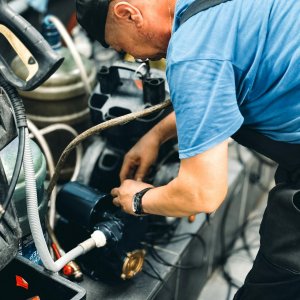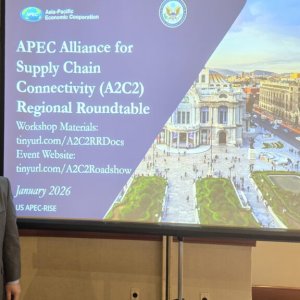Securing Safe, Regulated Pharma 4.0 Practices for Mexico

Securing Safe, Regulated Pharma 4.0 Practices for Mexico

STORY INLINE POST
Q: What programs does ISPE Mexico want to promote in 2021?
JC: 2021 will introduce many challenges. One of the most important will undoubtedly be to consolidate all the work we have done in recent months. Our membership registrations were also affected by the pandemic. Next year, we have to rise to the occasion. In the end, ISPE exists by and for the membership. We already have a program in place with different activities to provide the added value that people expect when they become members of ISPE Mexico.
PFF: Among this year's successes was the Latin American event we organized. The approach we had with Argentina and Brazil meant that we were able to hold an interesting event where both countries and Mexico shared their vision of the industry. ISPE US is looking forward to consolidating Latin America as a group and that will also be one of our objectives for next year.
JC: ISPE Mexico wants to become one of the driving forces behind the integration of the Latin American chapters to give us greater strength and presence with our main offices.
Q: What is the future of pharmaceutical operations in Mexico following the pandemic?
PFF: The industry will not change. Disruptive strategies and a change in business models will be seen as many businesses adapt to the new conditions. However, the bricklayer will still be needed and pharmacists will need to continue mixing chemicals to create new drugs. As I see it, the pharmaceutical industry itself is not necessarily going to change because of digitalization. What will happen is that companies will develop products more quickly to respond faster to health situations. This is a big lesson for the pharmaceutical industry.
JC: I do not think there will be a radical transformation. There will be no change in the substance of what the pharmaceutical industry does. But I think we have already seen a change. Companies in that industry had to rethink many of their internal processes to function better in the current context. Next year, most people will be vaccinated and somehow the emergency will end but the way in which pharma companies manage their staff and processes will no longer be the same. The vaccine will reduce the risks of infection but for a long time there will be people still infected with COVID-19. We do not yet know how far the vaccine will go worldwide and how long its protection will last in the human body. We do not even know if the virus will mutate or if another virus will arrive anytime soon. Not only the pharmaceutical industry but the world has already changed. Many of the lessons we learned this year will remain for a long time.
Q: What new technology processes in the pharmaceutical sector will ISPE promote in the coming months?
PFF: The focus of the last event we held, in October, was on the big technology debates in the industry. Digital integration is a powerful movement in the industry and probably one that will change the way medicines are made in the future. Working with increasingly contained systems to limit the risk of contamination of a product or of operators is one of the most interesting topics to keep an eye on in the future.
JC: Many of ISPE's projects for the coming year are focused on manufacturing, supply chain and innovation. Pharma 4.0 is involved in all stages. The future is happening right now and it is heading toward technological innovation. Big data, augmented reality, AI and automation are already in the pharmaceutical industry and these elements are included in our training programs.
There are still traditional processes that need to be reinvented and new processes that will emerge. Regulation is going to play an important role in this and has to go hand in hand with all these changes in industrial processes. If not, there may be an enormous gap in the industry.
Q: What are ISPE Mexico's main regulatory concerns in the pharmaceutical sector?
JC: The changes at the process level, which are linked to technological developments, are quite fast. Technology moves forward by leaps and bounds. Things that seemed impossible a couple of years ago are now a reality. Therefore, we need regulations and institutions to catch up with the times. This requires more risk analysis, more strength in risk management and adaptability in regulatory processes and procedures to address issues.
Many of the inspection and verification activities in the pharmaceutical sector have stopped. This has forced many regulatory agencies and organizations worldwide to start generating processes for remote audits. In the near future, many of the verification and inspection activities will probably be remote but legislation is needed. This will generate great savings and greater resource efficiency.
Q: ISPE mentions on its website that a shortage of a drug leads to change. What are the main concerns of the pharmaceutical industry in Mexico regarding supply continuity?
PFF: ISPE is a knowledge-sharing enabler. The pharmaceutical industry is facing several challenges. The biggest is that the rules of the game have changed completely in Mexico, and companies must adapt. We do not take sides; we are here to help industries gain access to the most up-to-date knowledge in terms of engineering and technical knowledge to face any situation.
Q: What is ISPE’s biggest contribution to the Mexican health sector?
JC: For decades the guidelines edited by ISPE, trainings and forums in which ISPE has been involved were important part of the sources from where the healthcare industry and regulatory agencies in Mexico have obtained the best solutions about how to achieve the regulatory compliance. Our expectation is that, with the creation and growth of the ISPE Mexico Affiliate, the Mexican industry will continue to obtain the best of the most updated technologies and knowledge, and increase their competitiveness, efficiency and profit. At the end of the day, the industry will produce safer drugs at lower cost.
The International Society for Pharmaceutical Engineering (ISPE) is the world's largest nonprofit association focused on leading scientific, technical and regulatory advancement throughout the entire pharmaceutical process.























